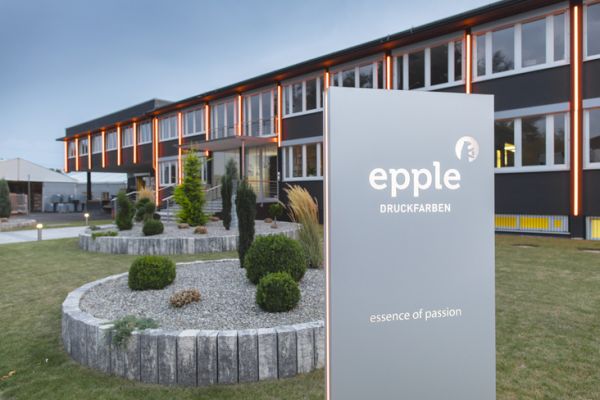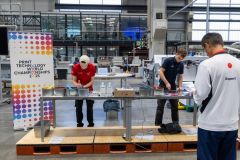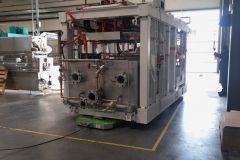The courts have ruled. After seven years of proceedings, the courts have rejected the claim by two printers for damages of over five million euros against the German manufacturer of sheetfed offset inks, Epple Druckfarben.
Seven years of proceedings for two printers and Epple Druckfarben
The story broke in January 2016. The German trade press publishes several articles indicating that metal particles in the printing inks produced by Epple Druckfarben have caused damage to sheet-fed presses, supported by the comments of sworn expert Colin Sailer.
In an interview, the man explains that he has been dealing with this topic since 2014 on behalf of a major machine builder and Epple Druckfarben's liability insurer.
The damage to the machines was said to be caused by chipping of the balls in the ball mills used by ink manufacturers to finely grind the material. He claims to have found numerous metal particles between 0.2 and 0.8 mm in size in new ink pots, and to have identified them as coming from a specific bearing steel. According to him, these particles would scratch the printing plates and various rollers of offset presses.
Two major German printing plants, located in Dresden and Würzburg, accompanied by Colin Sailer as an expert, immediately filed claims for damages against Epple Druckfarben.
Expert appraisals without proof, ink damage called into question
Seven years later, the various expert reports requested by the courts on inks and printing machines have failed to provide proof of the damage caused by the inks of the manufacturer founded in 1870.
The court therefore dismissed the two printing works.
A victory for all printing ink manufacturers, says Epple Druckfarben
Carl Epple, spokesman for the Epple Board of Directors and responsible for Sales, Production, Development and Innovation, says in a statement: "This is an important day not only for us, but for all printing ink manufacturers, as well as for the graphics industry itself. For, in our opinion, it was the process of manufacturing offset inks using ball mills that was itself on trial."
He adds: "During these years of disputes, we've had to listen to a lot of things, and not just factual things. Today, we are proud of our tenacity and very happy with this 'acquittal'. The payment of legal costs by the plaintiffs brings the case to a close. (...) The printing industry should be able to concentrate fully on its current challenges."













